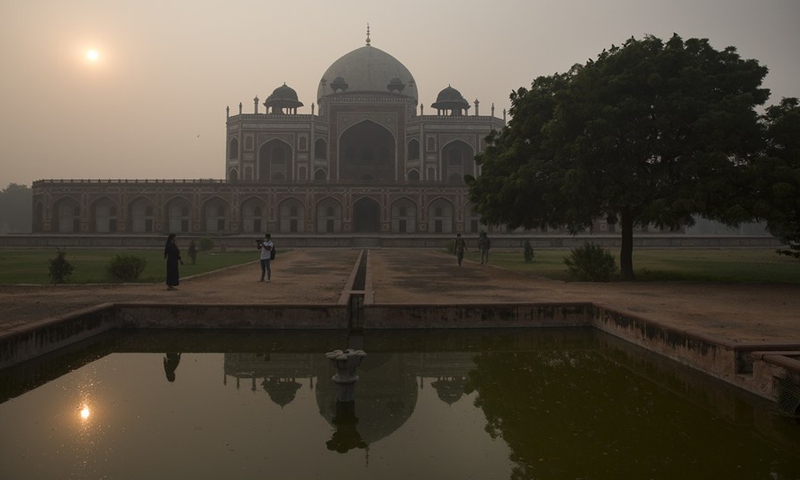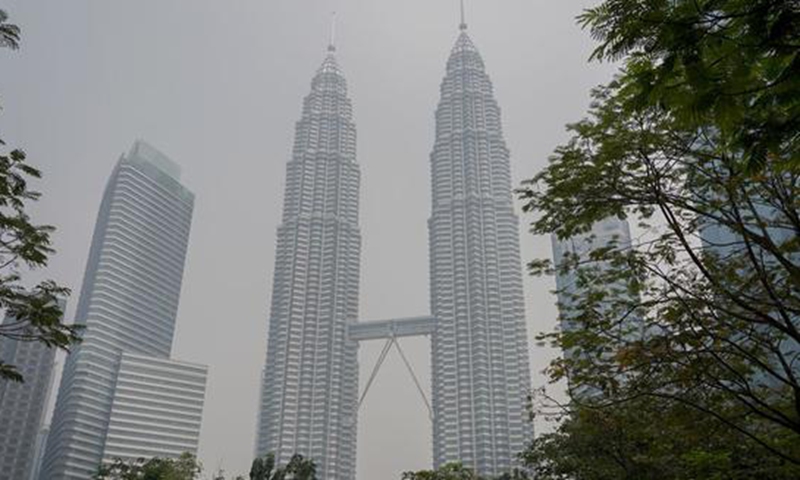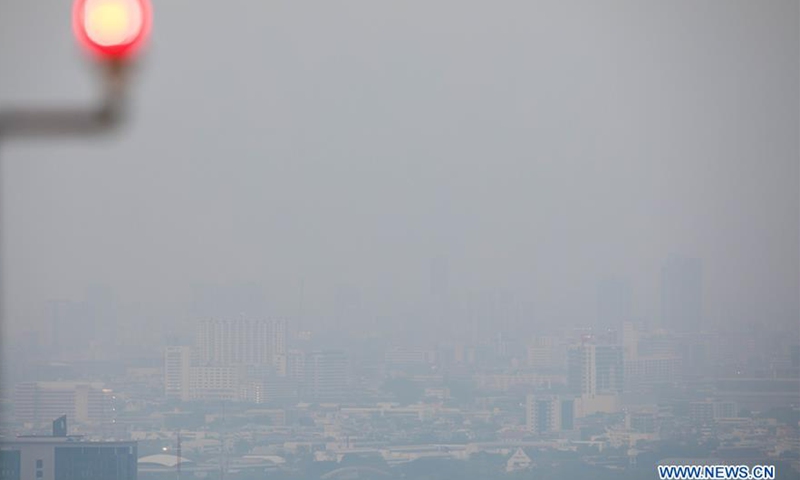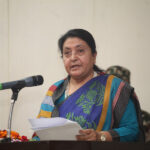
People take pictures near Humayun’s Tomb, a UNESCO World Heritage site, amid thick smog in New Delhi, India, Nov. 4, 2020. (Xinhua/Javed Dar)
Almost the entire global population, or 99 percent, breathes air that exceeds air quality limits set by the World Health Organization (WHO), the UN health agency said in a statement on Monday.
Even though a record number of more than 6,000 cities in 117 countries now monitor air quality, people in those cities still breathe in dangerous levels of fine particles and nitrogen dioxide, with people in low and middle-income countries suffering the highest exposures, WHO said.
The findings prompted WHO to call for a reduction in fossil fuel use and other concrete measures to lower air pollution levels.
“High fossil fuel prices, energy security, and the urgency of addressing the twin health challenges of air pollution and climate change, underscore the pressing need to move faster towards a world that is much less dependent on fossil fuels,” said WHO Director-General Tedros Adhanom Ghebreyesus.
Particulate matter, especially PM2.5, is able to penetrate deep into the lungs and bloodstream, causing cardiovascular, cerebrovascular and respiratory disorders, the statement said, adding that nitrogen dioxide is associated with respiratory diseases, especially asthma.
WHO estimated that more than 13 million deaths worldwide each year are due to preventable environmental causes, including seven million deaths related to air pollution.
“After surviving a pandemic, it is unacceptable to still have seven million preventable deaths and countless preventable lost years of good health due to air pollution,” said Maria Neira, Director of the Department of Environment, Climate Change and Health under the WHO.

Petronas Twin Towers are shrouded in haze in Kuala Lumpur, Malaysia, Sept. 10, 2019.(Xinhua/Zhu Wei)
To improve air quality and health, WHO recommends safe and affordable public transport systems and networks suitable for pedestrians and cyclists, investment in energy-efficient housing and power plants, improved management of industrial and municipal waste, reduction of agricultural waste incineration and some agro-forestry activities such as charcoal production.
Photo taken on Jan. 31, 2019 shows a view of Thailand’s capital Bangkok enshrouded in smog. More than 400 schools in Bangkok were temporarily d in the face of the city’s aggravated air pollution. (Xinhua)




